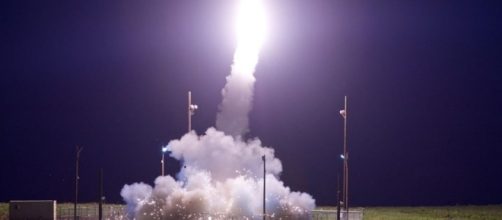Hiroshima 72 years ago, 8.10 AM - Enola Gay, a US B-29 bomber carrying the worlds first atom bomb specifically designed to kill people dropped "Little Boy." Five minutes later approximately 70,000 people were dead and nearly the same amount of people died in the following days, weeks and even years.
Japan is the only country in the world to suffer a direct Nuclear Weapon attack and seventy-two years down the line they are under a very real threat once again - this time from North Korea.
Hiroshima Day and Japan has not signed the UN Nuclear Weapons Treaty
As Japan gathers to pray for their dead, as school children visit the Atomic Bomb Dome to mark the day, Greenpeace are wondering why Japan has not joined the 122 countries who voted in favor of the UN Nuclear Weapons Treaty adopted on July 7.
Yuko Yoneda, the Executive Director at Greenpeace Japan describes Japan's absence from that treaty as "peculiar." In an article on the Greenpeace News Blog, she wrote, "as the only country in the world hit by a nuclear attack, Japan’s commitment to the Treaty would not only be a long-fought win for the country’s tainted history, but also an important step towards a future world that is ultimately safe and nuclear free."
As the years have gone by, each year the world's nuclear powers have managed one way or another to not annihilate each other.
The Cold War years were ascribed an uneasy peace because major nations had nuclear weapons and the threat of tit for tat destruction was reasoned to be the ultimate reason why the world exists as we know it today.
Greenpeace, North Korea, and nuclear weapons
Nuclear countries include the US, Russia, China, France, UK, India, Pakistan, Israel, and more recently, North Korea. The rest of the world, including Japan, have to rely on those nations to provide the invisible protection against the threat of nuclear war. While each of those countries pose a nuclear threat, they also are in reality, a deterrent to it, with possibly the exception of North Korea.
There is a rather obvious reason why Japan has not yet signed that treaty, and that is because they do fall under the American nuclear umbrella.
By signing the treaty they would immediately become in breach of the treaty because of the clause, prohibiting the "threat to use." With North Korea currently threatening to send nuclear bombs to the U.S. Mainland, Europe, Australia and Japan, this puts Japan in a very difficult situation.
Given the current status of North Korea and Kim Jong-un's determination to increase his belligerent nuclear program, the reality is that every day that goes by, Japan is edging closer to the nightmare of 72 years ago, and anything they sign is unlikely to make much of an impression on the North Korean leader.
Greenpeace is not likely to ever get North Korea to give up their nuclear weapons and Kim is not going to lend his signature to any non-nuclear treaties.
It really can be likened to asking the Japanese lamb to lie down with the Korean lion to make it easier to gobble her up.
It is a noble and commendable thing that Greenpeace is trying to do, and it would be wonderful if a nuclear weapon was never used again, but the real world is a harsh and hard place. Hiroshima is a testament to that.

